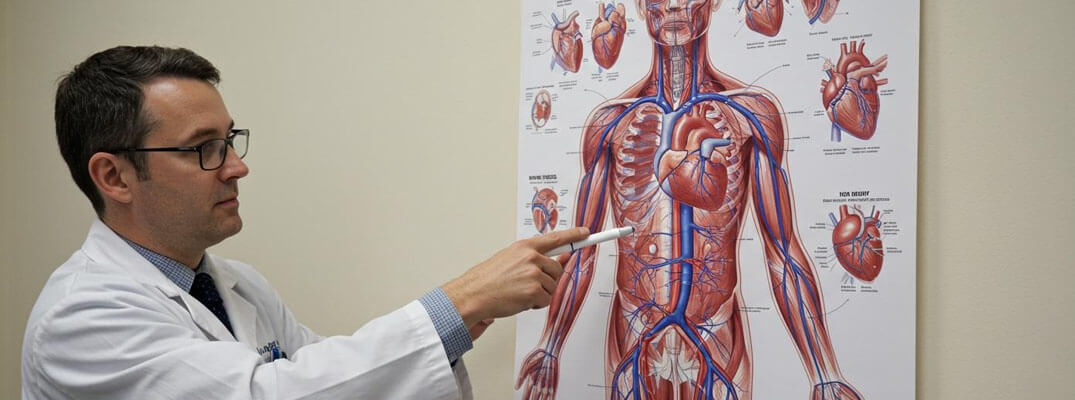

Most people think neuropathy is just about foot pain.
But what if the burning, tingling, and numbness in your feet were warning signs of something even more serious—your heart?
New research shows that people with neuropathy are up to twice as likely to develop heart disease. But most don’t realize the connection until it’s too late.
Your nerves and your heart are closely linked. When one is struggling, the other often suffers too.
Neuropathy happens when nerves become damaged and stop working properly. It’s most common in the feet, but what many people don’t realize is that it can also affect the nerves that control your heart and circulation.
When those nerves weaken, they stop regulating your blood pressure, slow down circulation, and make your heart work harder than it should.
Blood flow is crucial for both nerve function and heart health. But neuropathy damages the small blood vessels that keep your nerves and heart oxygenated.
What happens next?
“I thought my cold feet were just part of my neuropathy. I never imagined it meant my heart was struggling too.” — Jim, 70
Most people don’t realize that neuropathy can affect the nerves that control blood pressure. When these nerves are damaged, blood pressure can spike or drop suddenly.
Why is this dangerous?
“I would get dizzy out of nowhere. My doctor told me my neuropathy was affecting my blood pressure.” — Mike, 68
Neuropathy and heart disease both involve chronic inflammation. Inflammation damages nerves, weakens blood vessels, and puts extra strain on the heart.
The hidden cycle:
The result? A dangerous cycle where neuropathy makes heart disease worse—and vice versa.
For some people, neuropathy was the first sign of a hidden heart issue.
If you have neuropathy, your heart health could be at risk—without you even realizing it.
Most people don’t realize their nerve pain is connected to heart health. Ask your doctor for a circulation and heart health check-up.
Healthy circulation reduces stress on both your heart and your nerves. Improve blood flow with:
Foods that support both nerve and heart health:
Dehydration makes blood thicker, forcing the heart to work harder. Stay hydrated to keep circulation running smoothly.
Chronic stress increases inflammation, making both neuropathy and heart disease worse.
Simple daily stress relievers:
Poor circulation slows down nerve repair and puts extra strain on the heart.
The neuroPro™ Foot Massager uses Oxygen Boost Technology to stimulate circulation and support nerve health.
👉 Click here to learn more about neuroPro™ and how it supports nerve health.
👉 Click here to see how neuroPro™ can help.
Have you or a loved one experienced heart issues along with neuropathy?
💬 Share your experience in the comments below!
And if you know someone who should read this, send them this article—it might just save their life. 💙